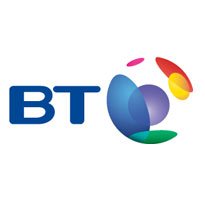BT to get £36m per Cerner site in South
- 2 December 2010

A breakdown of the costs of BT’s £542m National Programme for IT in the NHS contract for parts of the South of England lays bare the telecom giant’s prices. It also provides a yardstick for all local service provider contract prices.
BT will be paid £36m for each of the seven NHS trusts running Cerner Millennium that was installed by the South’s former local service provider, Fujitsu.
It will get £23m for each of three new Cerner installations. And it will receive £9m for each of the 25 RiO sites in the South. All prices are said to be based on pricing in the other LSP contracts.
Incredibly, contract changes specified by the Department of Health mean BT will be paid more for delivering Cerner to three ‘greenfield’ sites than it would have been paid for the four originally agreed.
The contract with BT for the South was negotiated by the DH after Fujitsu’s exit from the programme in May 2008. It had been intended to cover 10 new installations of Cerner; a number later reduced to four and then three.
For providing four hospital trusts with Cerner Millennium, BT was to be paid £65m. But the figure rose to £69m after the number of new sites decreased to three.
The breakdown of prices in the £542m contract are provided in a letter from Amyas Morse, comptroller and auditor general of the National Audit Office, to Richard Bacon MP, a member of the House of Commons Public Accounts Committee.
His letter shows that BT was the only supplier the Department of Health negotiated with to take over the eight Cerner sites in the South Fujitsu’s contract was terminated. The basis for the sudden termination remains in dispute. The eight sites became seven when one trust switched off the system.
The letter does not say what Fujitsu was paid for its installations of Millennium in the South. It does set out the scale of the charges that BT is being paid for their support, upgrade and maintenance.
For the nine months between July 2009 and March 2010, before the seven sites migrated to the BT data centre, the service management charge was £35.1m. The cost of transferring the seven sites to the BT centre was an eye watering £73.8m.
Then, there was a £16.5m charge for upgrading six Millennium sites to a new (LCO) version of the software – a process that has yet to be completed. The upgrades take the total to £125.5m for the seven live sites.
Further charges then made for providing fixes or basic clinical functionality. Providing orders and results functionality, separate to the upgrades above, racked up another £4.9m.
Sundry others, including “resolution of known defects in Millennium Release 0, delivery of data set change notices, provision for contract change notices”, added another £12.2m.
In total, payments to BT add up to £142.6m to date for the live seven sites. On top of this figure again comes £108.9m for service management for seven live sites in the BT data centre through to October 2015.
This pushes the grand total of payments to BT for seven existing Cerner sites to £251.5m. So for each NHS hospital trust in the South of England currently running Cerner, BT will receive £36m.
The further £5.5m to BT for hosting and licenses for the Map of Medicine web application almost seems small beer by comparison.
But the prices in the South are not exceptional. They are in line with those in the LSP contract with BT for London and CSC’s deals for the North, Midlands and East of England.
The NAO Comptroller’s letter states: “The Department calculated the estimating costs of the deployments still remaining at the time of termination using the prices in the existing LSP contracts help by BT and CSC, adjusted for risk.”
Morse goes on to say, however, that because BT was the only supplier the DH had no comparison on prices. “The Department has advised us that it determined the cost of the RiO deployments and new acute trust deployments on the basis of BT’s existing London LSP contract.”
E-Health Insider reported yesterday that Morse had told Bacon it the NAO would take another look at NPfIT, focusing on the deal with BT for the South of England. Bacon urged officials and the NAO to look closely at the deal and whether it represented value for money last autumn.
Morse advises Bacon that a memorandum he is preparing for the PAC “will include more detailed consideration of the Department’s decision to award the contract for the South to BT and the basis upon which the costs of the contract were determined and agreed”.
He adds this will include examination of how additional functionality specified drove up costs for three deployments to higher than the price for four.




